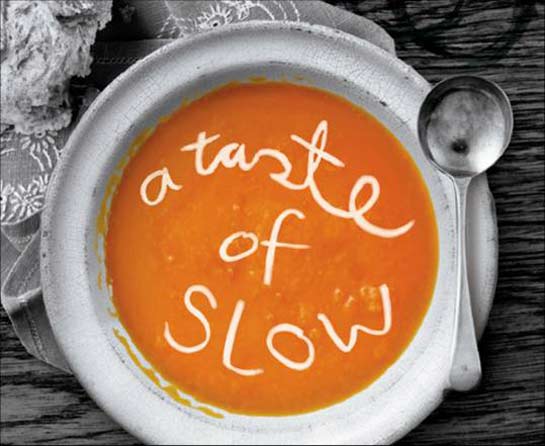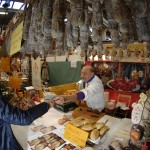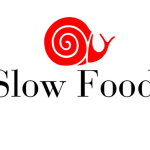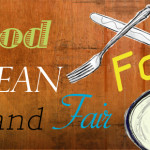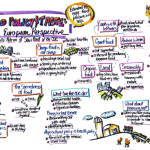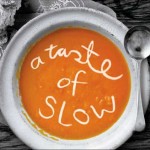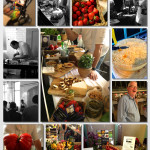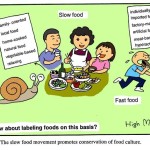Slow Food London is …
Slow Food is an idea, a way of living and a way of eating. It is a global, grassroots movement with thousands of members that links the pleasure of food with a commitment to community and the environment. A non-profit member-supported association, Slow Food was founded in 1989 to counter the rise of fast food and fast life, the disappearance of local food traditions and people’s dwindling interest in the food they eat, where it comes from, how it tastes and how our food choices affect the rest of the world.
That a movement to counter fast food is itself a paradox, given that “fast food” joints have been around for a very long time, and the British love of old-fashioned stews and casseroles shows no sign of dying a death. Granted there is way too much convenience cooking going on, but I don’t recall any activities from this organisation to stand against the supermarket bung-it-in-the-microwave philosophy, nor to encourage proper slow cooking.
Slow Food UK is a commitment to be taken lightly, given individual membership of £25 a year (family £35), but the only obvious commitment the organisation makes is to biodiversity through its own foundation, plus a few events. These are the stated objectives of the organisation:
- developing an “Ark of Taste“[4] for each ecoregion, where local culinary traditions and foods are celebrated
- creating “Praesidia” grassroots organizations to promote slow foods to the public
- forming and sustaining seed banks to preserve heirloom varieties in cooperation with local food systems
- preserving and promoting local and traditional food products, along with their lore and preparation
- organizing small-scale processing (including facilities for slaughtering and short run products)
- organizing celebrations of local cuisine within regions (for example, the Feast of Fields held in some cities in Canada)
- promoting “taste education”
- educating consumers about the risks of fast food
- educating citizens about the drawbacks of commercial agribusiness and factory farms
- educating citizens about the risks of monoculture and reliance on too few genomes or varieties
- developing various political programs to preserve family farms
- lobbying for the inclusion of organic farming concerns within agricultural policy
- lobbying against government funding of genetic engineering
- lobbying against the use of pesticides
- teaching gardening skills to students and prisoners
- encouraging ethical buying in local marketplaces
I have no problem with these laudable objectives, though there seems to be more about sourcing of vegetables than supporting slow cookery everywhere or forming a campaigning body to counter the tide of fast everywhere in our lives. What they do do is not necessarily bad or counterproductive but seems the name may be a touch misleading in terms of the needs of society for slow food at every level.
Further research reveals a critique of what appears to be a troubled organisation from the Guardian (see here.) I’m not going to repeat the allegations, but if we are talking about slow food what we should be doing is singing its praises and explaining in public why it’s better to cook long and slow – in other words, to be high-profile and fighting back against the tide of marketing propaganda from the fast food industry, supermarkets and others with a vested interest in selling you unhealthy instant foods. Why is slow better? Here are a few reasons I can think up off the top of my head:
- Slow cooking makes tasty dinners of cheaper cuts.
- It’s easy and economical to cook large batches of food slowly and freeze some for a fresh and convenient home-made meal on other occasions.
- Food cooked slowly from fresh ingredients is always better for you than instant fried foods such as burgers, chips, kebabs and suchlike – and fatty foods such as pizzas. Processed foods contain high volumes of salt, sugars and saturated fats.
- Fast foods also lack the nutritional content of a balanced home-cooked dinner.
- You don’t know what quality of meat, nor what additives or hormones or enzymes are in commercial fast/convenience food. If you make it yourself, you know precisely what is used.
- Learning to relax and enjoy simple pleasures helps us all get more from life.
- Best of all, slow-cooked food tastes better!
This is of course cart before the horse. The root problem isn’t just fast food, it’s fast lives – alluded to by the quote above. However, slow cooking gives every family an opportunity to congregate around the table at conventional dinner times rather than grabbing a burger or whatever on the hoof, to be social rather than disparate and isolated eating. We should be slowing down our lifestyles, not speeding up our food to suit, and when we do eat eat slowly for the benefit of our digestion.
The Spanish have lunch and siesta, then late night meals with the extended family and friends, so why are Brits becoming increasingly fragmented in our everyday eating habits? We don’t savour, we gobble our food. It’s become a refuelling stop rather than an occasion or a joy, so slowing down to appreciate one another and the flavour of our meal would be a massive improvement in our lives. We don’t need to be constantly busy!
The other aspect is that we as a society seem to have lost the knack of cooking, which is not hard but is related to a few techniques, confidence and fuelled by a desire to learn, experiment and enjoy. Time was when girls and even boys learned the basics from parents and school too, but since people of my generation stopped learning to cook, so their children never pick up the skills either.
Maybe the Slow Food organisation needs to refocus and get back to the heart of slow living and communal eating in order that we might better reap the benefits of its work elsewhere, which is after all supported already by the Soil Association, the Organic Grower’s Alliance and other existing organisations. Changing our food and eating habits, and lobbying government to help us do so, might spur everyone on to better, healthier living and caring what we put into our bodies.

